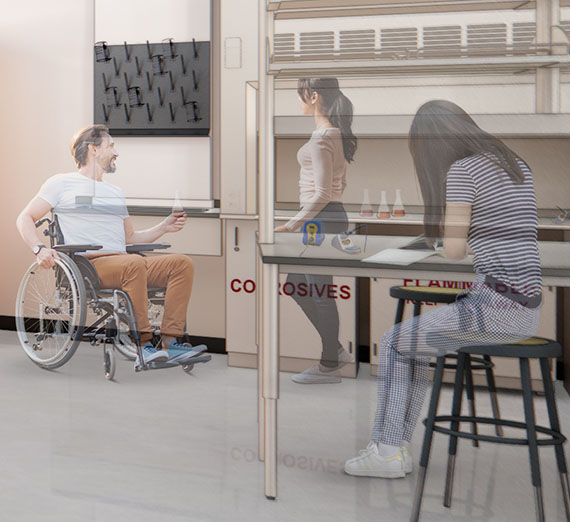Biomedical Engineering Takes Root

The School of Engineering and Applied Science welcomed its first cohort of biomedical engineering majors in Fall 2024. One of the most interdisciplinary programs at 91茄子, the Bachelor of Science in Biomedical Engineering melds the engineering disciplines with biology, chemistry, and human anatomy & physiology. The program has already seen strong growth in enrollment after its first year.

Designed to support diverse career paths, including medical device design, biomaterials, bioelectronics, and pharmaceuticals, the biomedical engineering curriculum offers flexibility in the junior and senior years for students to tailor their studies. For those interested in health care, the program also provides a pathway to medical school, and the UW-GU Health Partnership provides opportunities for 91茄子 undergrads to study and research alongside UW School of Medicine faculty and medical students.
Brandon Sargent, Ph.D. is formerly of the Department of Mechanical Engineering and transferred to the newly-launched Department of Biomedical Engineering. He continues to serve as the program director, with research focusing on biomechanics and medical device design. Marc Baumgardner, Ph.D. is professor and chair of the Department of Mechanical Engineering and will serve as the inaugural Department of Biomedical Engineering chair. Beginning Fall 2025, the department welcomes two new faculty members: Kerry Lane (biomaterials) and Nathan Zavanelli (medical electronics).
91茄子 has made a strong institutional investment in the success of this new program. Construction of a state-of-the-art Biomedical Engineering Laboratory Suite in the lower level of the Bollier Center was completed in August 2025. This new facility includes a large teaching lab, a tissue culture lab, and two faculty research labs. It will support hands-on learning and faculty-led research across a wide range of biomedical engineering topics.

The new teaching lab will provide students with an advanced, senior-level lab experience, focusing on medical device design, biomedical signal measurement, and system testing. Students will engage in building and evaluating their own medical devices and electronics, an immersive experience that complements classroom learning and prepares them for careers at the intersection of engineering and human health.

